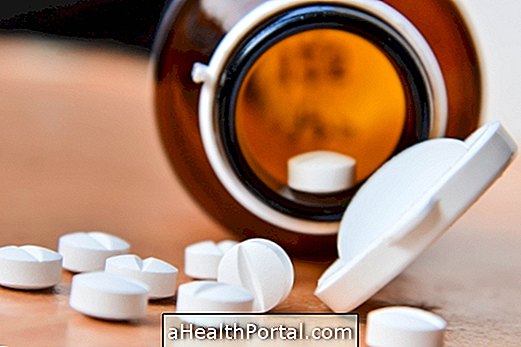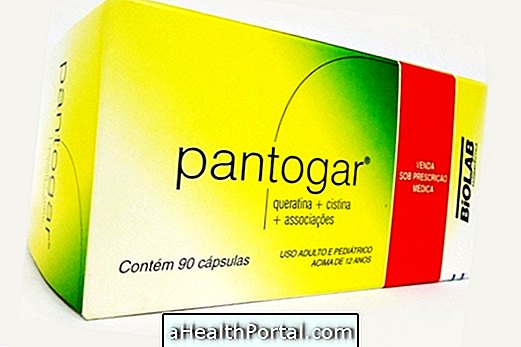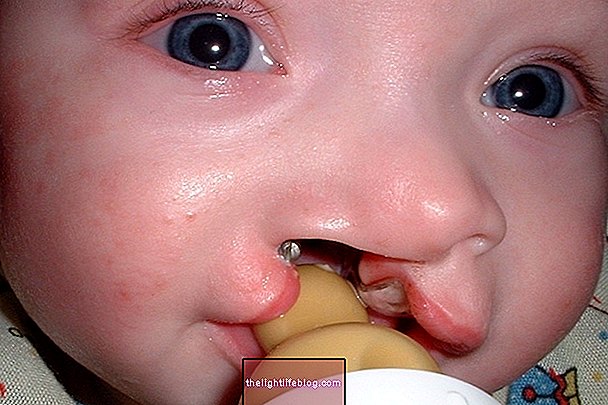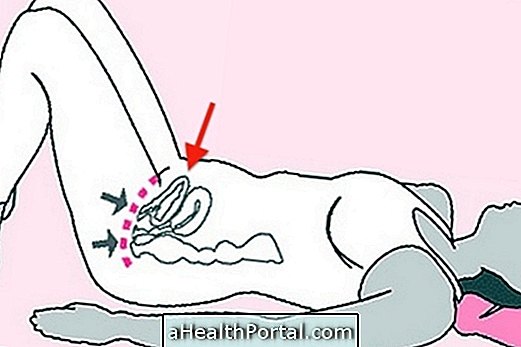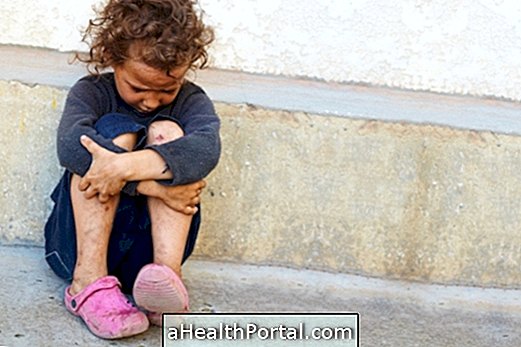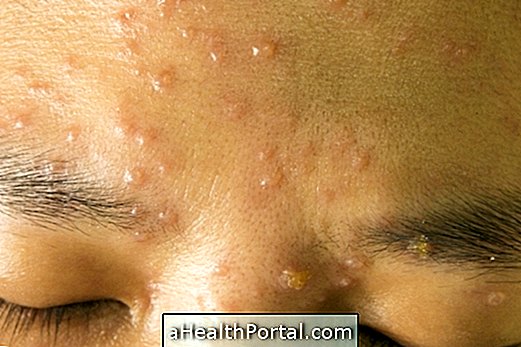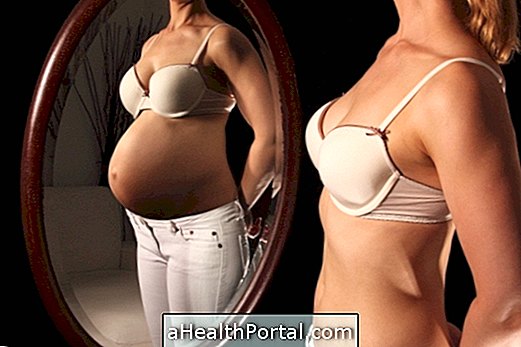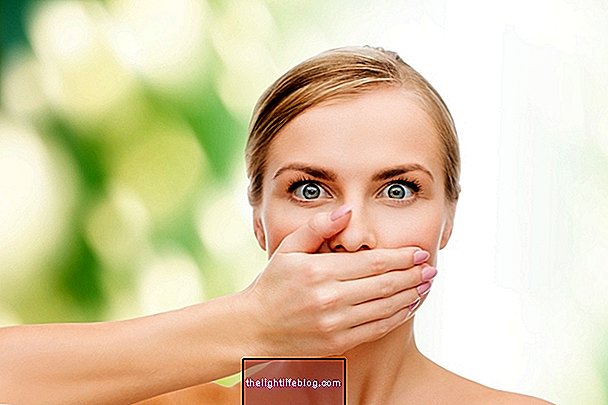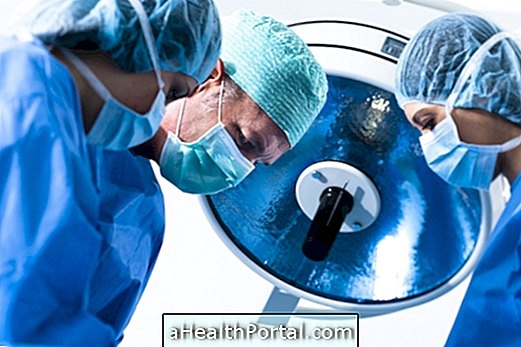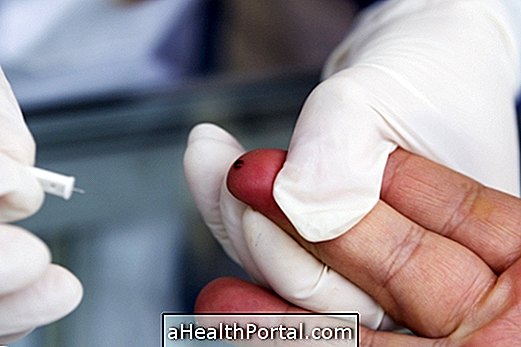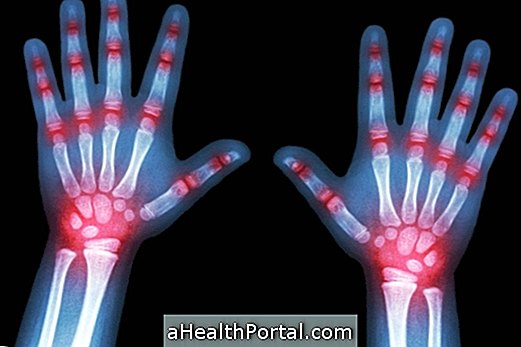The HPV vaccine, or human papilloma virus, is given in the form of an injection and is intended to prevent diseases caused by this virus, such as precancerous lesions, cervical cancer, vulva and vagina, anus and genital warts. This vaccine can be taken at the health clinic and private clinics, but is also offered by the SUS at health posts and in vaccination campaigns at schools.
The vaccine offered by SUS is the quadrivalent, which protects against the 4 types of HPV viruses most common in Brazil. After the vaccine is taken, the body produces the antibodies necessary to fight the virus, so that if the person is infected, it does not develop the disease and is protected.
Although not yet available to be applied, Anvisa has already approved a new vaccine against HPV, which protects against 9 types of virus.
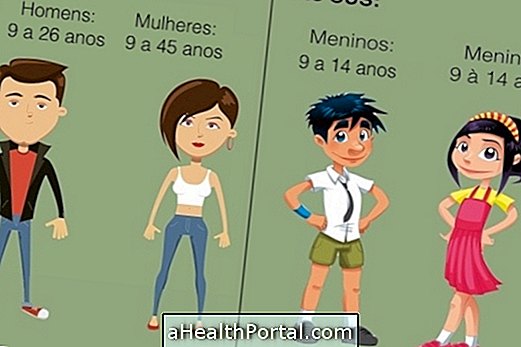
Who should take
The HPV vaccine can be taken in the following ways:
1. SUS
The vaccine is available free of charge at 2 to 3 doses to:
- Boys and girls from 9 to 14 years old;
- Men and women 9 to 26 years living with HIV or AIDS, patients who have received organ, bone marrow, and cancer treatment.
The vaccine can also be taken by boys and girls who are no longer virgins, but their effectiveness may be diminished because they may have already been in contact with the virus.
2. In particular
The vaccine can also be taken by people of higher ages, however, they are only available in private vaccination clinics. It is indicated for:
- Girls and women between 9 and 45 years of age, if it is the quadrivalent vaccine, or any age above 9 years, if it is the bivalent vaccine (Cervarix);
- Boys and men between 9 and 26 years of age with the quadrivalent vaccine (Gardasil);
- Boys and girls between 9 and 26 years of age, with nonvaloral vaccine (Gardasil 9).
The vaccine can be taken even by people who are treated or have had HPV infection because it can protect against other types of HPV virus and prevent the formation of new genital warts and cancer risk.
Price of HPV vaccine
The price of the bivalent HPV vaccine is approximately R $ 200 per dose and that of the tetravalent vaccine is approximately R $ 300 per dose when taken in the individual. The vaccine that protects against the 9 types of HPV is still priceless.
Types of vaccines and doses
There are two different vaccines against HPV: the quadrivalent vaccine and the bivalent vaccine.
Quadrivalent vaccine
- Indicated for women between 9 and 45 years, and men between 9 and 26 years of age;
- Protects against viruses 6, 11, 16 and 18;
- Protects against genital warts, cervical cancer in women and cancer of the penis or anus in the case of man;
- Manufactured by Merck Sharp & Dhome Laboratory, commercially known as Gardasil;
- It is the vaccine offered by SUS for boys and girls between 9 and 14 years.
- Doses : 3 doses are made in the 0-2-6 months schedule, the second dose being taken after 2 months and the third dose being made after 6 months of the first dose. In children, the protective effect can already be obtained with only 2 doses, so some vaccination campaigns can only provide 2 doses.
See the package leaflet for this vaccine by clicking on: Gardasil
Bivalent vaccine
- Indicated from the age of 9 and without age limit;
- Only protects against viruses 16 and 18, which are the major cause of cervical cancer;
- Protects against cancer of the cervix, but not against genital warts;
- Manufactured by the GSK laboratory, being commercially sold as Cervarix;
- Doses : When taken up to the age of 14, 2 doses of the vaccine are made, with a 6-month interval between them. For people over the age of 15, 3 doses are given, in the 0-1-6 month schedule.
Check out more about this vaccine in the package insert: Cervarix.
Non-emergency vaccine
- It can be given to boys and girls between the ages of 9 and 26;
- Protects against 9 subtypes of the HPV virus: 6, 11, 16, 18, 31, 33, 45, 52 and 58;
- Protects against cancer of the cervix, vagina, vulva and anus, as well as against warts caused by HPV;
- It is manufactured by the laboratories Merck Sharp & Dhome, under the trade name Gardasil 9;
- Doses: if the first vaccination is made up to 14 years, 2 doses should be administered, the second being between 5 and 13 months after the first. If the vaccination is after the age of 15 years, the schedule of 3 doses (0-2-6 months) should be followed, where the second dose is made after 2 months and the third dose is made 6 months after the first dose.

Who can not take
The HPV vaccine should not be given if:
- Pregnancy, but the vaccine can be taken soon after the baby's birth, under the guidance of the obstetrician;
- When you have any type of allergy to the components of the vaccine;
- In case of fever or acute illness;
- In case of reduction in the number of platelets and blood clotting problems.
Vaccination can help prevent HPV infection and cervical cancer, but it is not indicated to treat the disease. Therefore, it is also important to use condoms in all intimate contacts, and in addition, the woman should consult the gynecologist at least once a year and perform gynecological exams such as the Papanicolau.
Vaccination campaign in schools
The HPV vaccine is part of the vaccination schedule and is free in the SUS for girls and boys between 9 and 14 years of age. In 2016 the SUS also vaccinated boys from 9 to 14 years, because initially it was only available to those 12 to 13 years of age.
Boys and girls in this age group should take 2 doses of the vaccine, with the first dose being available in public and private schools or in public health clinics. The second dose should be taken at a health facility 6 months after the first dose or in a second vaccination season promoted by SUS.
Vaccine side effects
The HPV vaccine can have pain, redness, or swelling at the site of the bite as a side effect, which can be lessened by placing a cloth with a cloth on the spot. In addition, the HPV vaccine can cause headache, dizziness, nausea, vomiting and a fever over 38 ° C, which can be controlled with an antipyretic such as Paracetamol, for example. If the individual is suspicious of the source of the fever, contact the doctor.
Some girls have reported altered leg sensitivity and difficulty walking, however, studies do not confirm that this reaction is triggered by the vaccine and is more likely to be emotional reactions, anxiety or overcrowding, for example, as the use of the vaccine. Other changes related to this vaccine have not been confirmed by scientific studies.

Why is it preferable to vaccinate boys and girls up to the age of 15?
The scientific articles indicate that the vaccine against HPV is more effective when applied to those who have not yet started the sexual life, and therefore the SUS only applies the vaccine to children and adolescents between 9 and 14 years, nevertheless everyone can take the vaccine in private clinics
Is it necessary to have tests before taking the vaccine?
No HPV test is needed to check for HPV infection before taking the vaccine, but it is important to know that the vaccine does not have the same efficacy in people who have had intimate contact.
Who takes the vaccine does not need to use a condom?
Even those who took the two doses of the vaccine should always use the condom in close contact because this vaccine does not protect against other sexually transmitted diseases, such as AIDS or syphilis, for example.
Is the HPV vaccine safe?
This vaccine is safe and has few side effects because it has already been administered to many people from several countries and there are as yet no scientific studies proving serious side effects related to its use.
However, there are reported cases of people who may become nervous and anxious during the vaccination, and may faint, but this fact is not directly related to the vaccine applied, but to the emotional system of the person.

